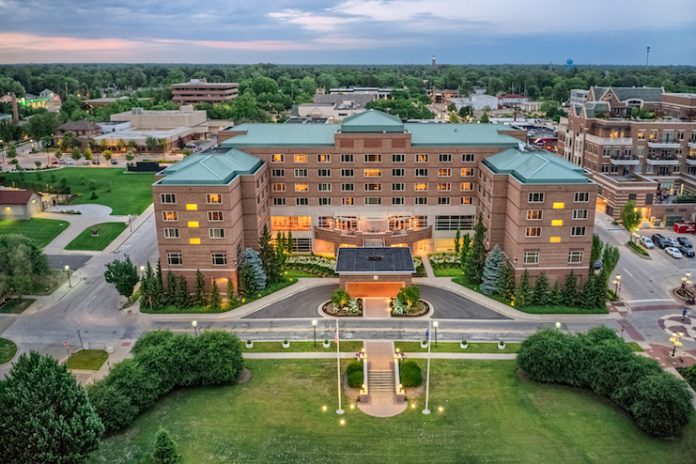
Hotels undergoing management transitions are commonplace throughout the industry, particularly in the wake of the pandemic, but seamless transitions are quite a bit harder to come by. That’s where Charlestowne Hotels feels it has a leg up thanks to an experienced management team and thorough process designed specifically to limit disruptions at the property level.
The Charleston, SC-based management company currently operates more than 50 hotels, the majority of which are independent or lifestyle hotels, according to Matt Barba, COO, Charlestowne Hotels. He walked through the process of assuming operations at a property and how the company looks to keep the unique aspects of the hotel in place.
“It all starts with our disruption analysis, which makes sure that there’s a continuity of everything that existed before and then allows us to do our due diligence. They’re not one-size-fits-all [properties] so each approach is different,” he said.
Barba continued, “We’ll do a pre-takeover planning session and we’ll do some operational audits, staff interviews, and look at guest feedback analysis. We’ll understand what the property strengths and areas of improvement are so that we can prioritize our efforts. Then we’ll do a customized integration plan that respects the unique aspect of the property, but aligns with the operational standards or brand values,” he said.
Founded in 1980, in addition to hotel transitions, Charlestowne’s management expertise encompasses all phases of operations, inclusive of day-to-day management, new development, property renovations and repositioning projects. Barba described the company’s sweet spot for hotels as under 150 rooms with “some level of complex food and beverage.”
Charlestowne assumed management of six hotels in 2023: Hotel Verdant in Racine, Wisconsin; The H Hotel in Midland, Michigan; Little Mod Hotel in Charlottesville, Virginia; and The Russell Inn, Courtyard by Marriott Starkville and Hampton Inn Starkville in Starkville, Mississippi, which are located on the campus of Mississippi State University.
Barba specifically touted the transition and repositioning of the H Hotel—which was previously part of the Dolce by Wyndham brand—to an independent property last fall as a prime example of the company’s skill sets. The 139-room hotel is located in Michigan’s Great Lakes Bay Region and has been a AAA Four Diamond recipient each year since 2013.
“What was interesting and unique about this one is that we not only took over management of the hotel, but we also de-flagged it at the same time taking it fully independent. Our team is pretty adept at doing a disruption analysis and then tailoring our approach from there. In this case, obviously we needed to quickly replace all the things that were going to be unplugged when the franchise left. So that became our priority with our eyes set on that transition date and then everything fell into place from there,” he said.
The COO went on to discuss some of the subtle nuances between taking over soft-branded properties as opposed to independents.
“With soft brands often they’re part of larger hotel chains, but they retain their unique identity. They come with these predefined brand standards and guest expectations so the takeover process involves us having this careful balance of maintaining that identity, while aligning with that broader brand standard and those loyalty programs. So there’s a little bit of a different structural framework when we’re integrating operational systems, the reservation systems, different marketing channels or loyalty programs. We have to navigate those carefully to ensure that there’s a smooth transition and that we maintain that balance,” he noted.
Meanwhile, Barba—who has been with the company since 2011—was asked to identify the key elements of differentiation for Charlestowne as compared to other hospitality management firms.
“If I had to distill it down there’s a lack of a culture [with other operators] and it really does impact overall operations. When we come in, we breathe fresh air into the property and you can sort of see this relief on the employees; there’s a weight that seems to be lifted,” he said.
Barba added, “I also think part of what works well for us is that we’re set up to remove administrative burdens and remove over-reporting and all of that from the property so that the property leadership is present in the operation.”
Finally, Barba credited the company’s owner-centric approach as a major reason that hoteliers continue to turn to Charlestowne to operate their properties.
“I think that they feel comforted by the level of detail that we bring as part of this disruption analysis, in addition to providing them with a critical path. So once we’ve done our due diligence and understand what our point of entry is going to be and we road map it out we’ll present that to them. Obviously, some of it’s not easily digestible for them, but I think they’re comforted by the level of detail that’s customized to their asset. It’s not us just showing up and saying things need to be done ‘our way,’” he said.
Sponsored by Charlestowne Hotels.











